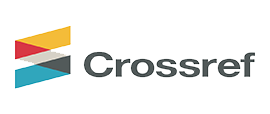Plagiarism Policy
Academic Strive, is a genuine attempt to promote creativity, is committed strictly to non-plagiarism and original publications in academics and research. As an eminent open-access platform, we are devoted to transfer knowledge through the ethical use of tools. In the following, we attempt at dealing with the plagiarism issue and tackling the usage of artificially created content in research publications.
Policy for AI-Generated Research Content:
- Plagiarism is identified as passing somebody else's work or ideas as one's own without attribution. The major reason why AI tools cannot be classified as authors is that they build on pre-existing concepts, pre-existing research, and their knowledge in the field. AI is a tool, but it is still indisputable that texts generated by AI could never replace the minds of humans who can think incisively, imagine, and infer truths from data.
- AI software can work for tasks like proofreading and organizing the manuscript, but humans are indispensable for critical thinking, analysis, and data interpretation, which are the main parts of authentic research.
- Moral concerns come into conflict with the use of AI technology in robust research because of the potential biases learned from training data and issues regarding the authorship and accountability of AI-generated content.
- Human participation in AI writing projects would ensure that the content is congruently integrated with the research while abiding by ethical standards. The researchers are the ones who must rigorously go through every step and check for the genuineness and the accuracy of the research.
- Stringent quality checking at Academic Strive involves incorporating AI-supported content by critically reviewing it for clarity, freshness, and ethical adherence.
- Remember, there must be a clear citation as a requirement where AI programs provide any input in the research. It is essential to refer to machine contributions in the manuscript, such as the responsibility and transparency, that is the key hallmarks of any report.
Plagiarism
Plagiarism is a kind of theft from someone else's work and ideas. This is when a person or group of people disappear with your work and do not reveal the author’s name or the source.
Common Forms of Plagiarism:
- Direct Plagiarism: Ripping off someone’s work word by word with the quotation missing.
- Paraphrasing Plagiarism: Rehashing the source's information without the proper aid of credit.
- Self-Plagiarism: Copying an earlier work without proper citation is self-plagiarism.
Detection Methods:
Academic Strive simultaneously works with modern plagiarism detection tools and professional editorial reviews to distinguish suspected plagiarism. Authors should be disciplined in quoting all sources as it is a good way to avoid plagiarism that is not intentional.
Plagiarism Levels and Consequences:
The author agrees by submitting work to the journal that the work is original, not previously published, or under consideration elsewhere. Academic Strive does not tolerate acts of plagiarism or reproductions of any part previously published without giving due credit.
- 25% or More Plagiarism: If plagiarism is detected in at least 25% of the manuscript, the authors will need to make the necessary revisions and resubmit work to the journal.
- 30% or More Plagiarism: If more than 30% plagiarism is detected, the manuscript will be rejected without review.
- When a case of plagiarizing happens after publication of a paper, the procedure will start with an investigation. Author's resources will be informed and also, university/institutes will be notified. Based on the degree of plagiarism, the manuscript might be withdrawn.
Preventing Plagiarism:
Authors can avoid plagiarism by doing the following:
- Proper Citation: Make sure to correctly mention all sources in the references and bibliography lists.
- Use of Quotations: Insert quotations within quotation marks and also include the correct citation.
- Paraphrasing with Attribution: Always remember to add references whenever you use paraphrased ideas.
- Get Copyrighted Manuscript Formation: Remember that when using copyrighted manuscript, everybody should get licenses and give full credit to the owner.
Academic Strive is committed to protecting the academic publishing process by respecting the integrity, and ethical responsibility of the publication. We can create a responsible and ethical research environment by following our plagiarism policy.





